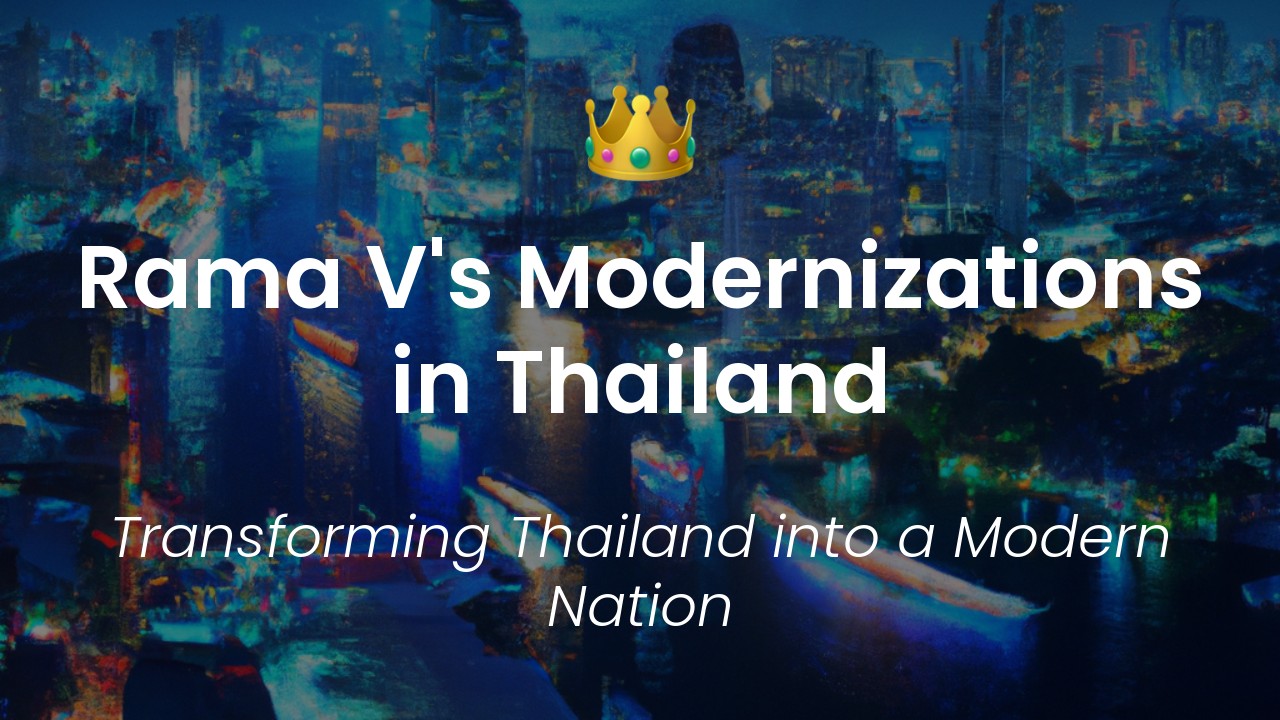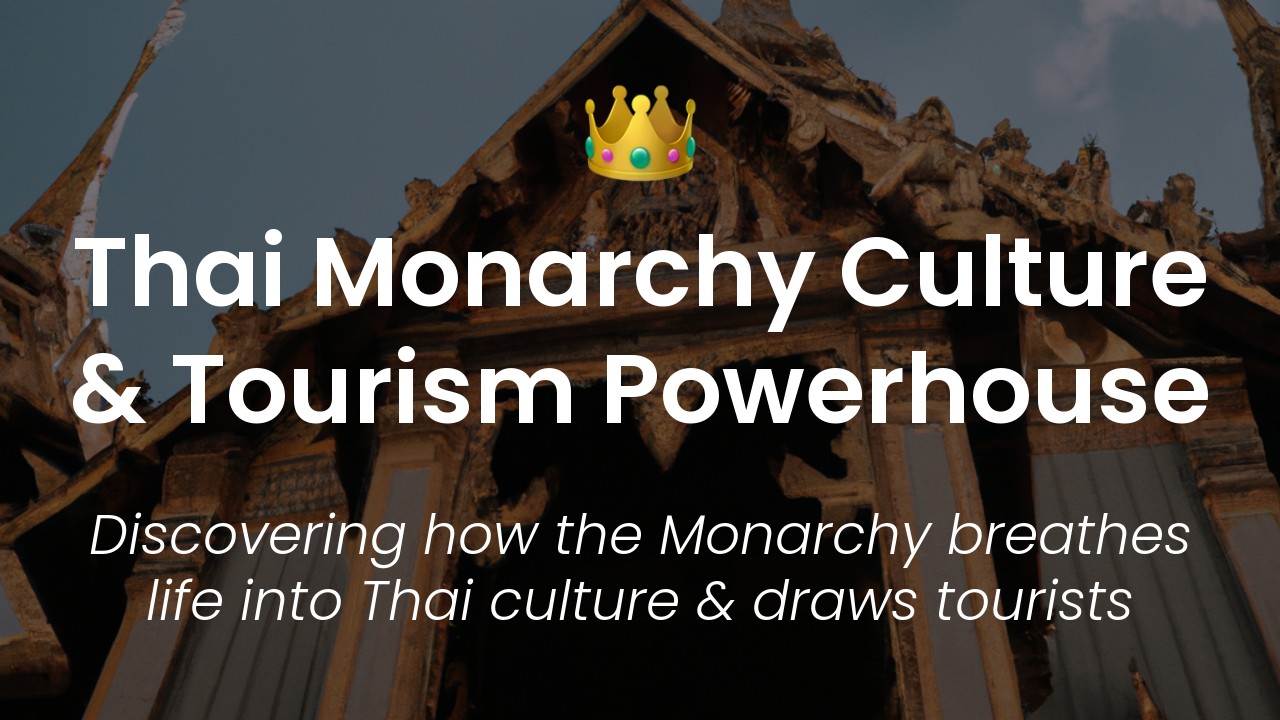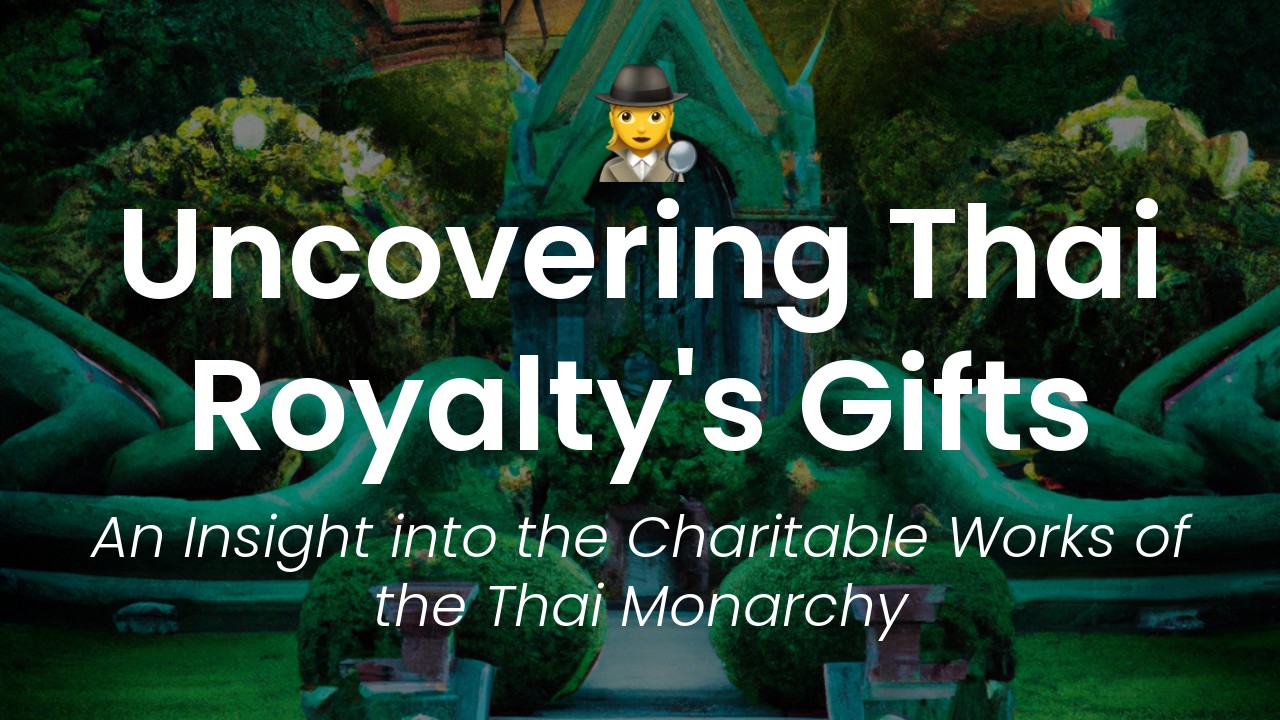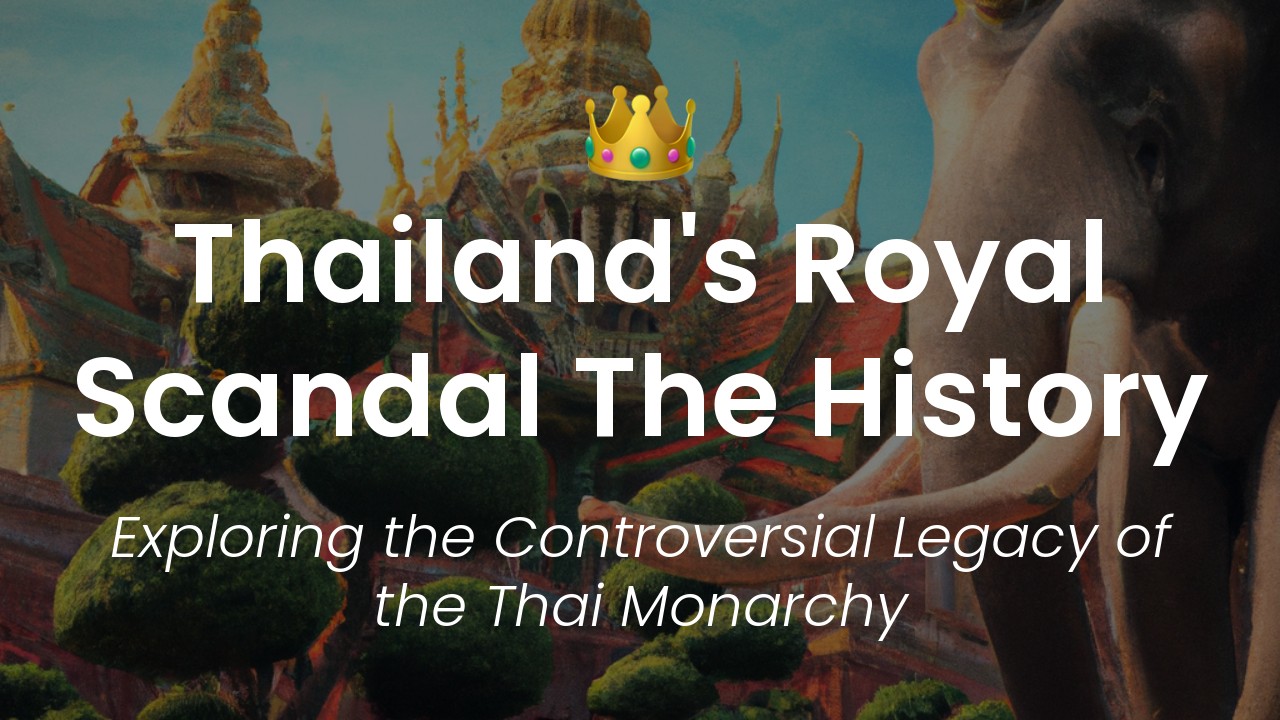Hello, my dear readers! It's your favorite blogger, Sirinya, and today, I would like to take you on a fascinating journey through time to discover the groundbreaking modernizations introduced by one of the most celebrated monarchs in Thai history – King Rama V!
King Rama V, also known as King Chulalongkorn, ascended the throne in 1868, at the age of just 15. Despite his youth, he was determined to bring about significant changes to Thailand and transform it into a prosperous and modern nation. He launched a series of reforms, ranging from abolishing the practice of prostration (kowtowing) to European visitors to creating a modern legal system to establishing the first railway lines in the country. He was not only a visionary ruler but also a diplomat who managed to keep Thailand independent and sovereignty despite the pressures from colonial powers.
His efforts to modernize Thailand were groundbreaking, and they continue to inspire people till date. He created a new civil code, which granted more rights for women. He revamped the educational system, by inviting foreigners teachers and sending Thai students to study abroad, so that people could acquire knowledge to participate in the global affairs. He also abolished slavery, reinforced national symbols and promoted sports.
So, if you are curious to learn more about the remarkable achievements of King Rama V, let's delve deeper into the history and discover how his revolutionary modernizations shaped Thailand's culture, economy, and society.
Initiation of Western-Style Education
King Rama V is one of the most iconic and revered figures in the history of Thailand. His reign ushered in a number of revolutionary changes in the country. One of his most significant contributions was his dedication to the education of the Thai people.
During his reign, King Rama V initiated a series of sweeping reforms that changed the face of Thai education forever. He realized that the Thai people needed to be educated in modern subjects to prepare them for the challenges of the modern world. So, he introduced Western-style education in Thailand.
King Rama V's efforts to modernize education began with the establishment of the first modern school in Thailand. This school was called the Civil Service Training School, and it was set up with the help of American advisors. The school aimed to provide Thai students with a modern education that encompassed subjects like mathematics, science, geography, and history.
One of the most revolutionary aspects of King Rama V's educational reforms was the establishment of the Chulalongkorn University in Bangkok. This university was the first institution of higher education in Thailand. The university provided a place for Thai students to study the arts, sciences, and humanities.
King Rama V was committed to making education accessible to all Thai people, regardless of their social or economic background. He established a number of primary schools throughout the country to ensure that even the poorest Thai children had access to education. Today, Thailand has a literacy rate of 96.7%, one of the highest in Southeast Asia, thanks in large part to the educational reforms initiated by King Rama V.
Abolition of Slavery
In addition to his educational reforms, King Rama V also initiated an effort to abolish slavery in Thailand. Slavery had been a part of Thai society for hundreds of years, with many people being born into slavery and living their entire lives in servitude. King Rama V recognized the inherent injustice of slavery, and he was committed to ending it in Thailand.
One of the first steps that King Rama V took towards ending slavery was the abolition of debt bondage. This form of slavery was common in rural areas, where poor farmers would sell themselves or their children into servitude to pay off debts. King Rama V declared that all forms of debt bondage were illegal, and he set up a system to help old slaves and those born into slavery transition into a life of freedom.
In addition to ending debt bondage, King Rama V also established a law that made it illegal for anyone to own another person. This law effectively abolished slavery in Thailand. While it took some time for the practice to die out completely, King Rama V's efforts paved the way for a more just and equal society in Thailand.
Creation of Modern Infrastructure
Another important contribution of King Rama V was his commitment to developing modern infrastructure in Thailand. When he came to the throne in 1868, much of Thailand was still undeveloped and lacked modern infrastructure. King Rama V saw the importance of having a strong infrastructure in place to facilitate economic growth and development.
One of King Rama V's most significant infrastructure projects was the introduction of railways in Thailand. Under his leadership, the first railway line was built between Bangkok and Ayutthaya. This line was later extended to Chiang Mai in the north and Nong Khai in the northeast.
King Rama V also oversaw the construction of roads and bridges throughout the country, which made it easier for people and goods to move around. He was committed to improving the lives of his people, and he realized that modern infrastructure was a key component of economic and social development.
Reformation of the Legal System
King Rama V was also instrumental in introducing a number of legal reforms in Thailand. Prior to his reign, the legal system in Thailand was based on ancient customs and traditions that had been developed over centuries. These laws were often complex and confusing, and they were not always fair or just.
King Rama V recognized the need for a more modern and equitable legal system. He introduced a number of legal reforms that aimed to simplify and codify the laws of Thailand. He also established a system of courts that were staffed by trained judges to ensure that legal disputes were settled fairly and impartially.
One of King Rama V's most significant legal reforms was the establishment of a system of laws that applied to all Thai people, regardless of their social or economic status. This was a revolutionary concept at the time, as previous legal systems had favored the wealthy and powerful. Thanks to King Rama V's reforms, the legal system in Thailand became fairer and more accessible to all.
Modernization of the Military
King Rama V was also committed to modernizing the military in Thailand. He realized that a strong military was essential for the security and stability of the country. He oversaw the introduction of new military technologies, including the first modern artillery pieces and machine guns.
King Rama V also introduced a number of reforms aimed at making the military more efficient and effective. He established a system of conscription that ensured that all Thai men received military training. He also introduced new tactics and strategies that were designed to make the Thai military more effective in battle.
Thanks in large part to King Rama V's efforts, the Thai military became one of the most modern and well-equipped in the region. This helped to ensure that Thailand was able to protect its sovereignty and maintain its independence.
Expansion of International Relations
Finally, King Rama V was instrumental in expanding Thailand's international relations. During his reign, he established diplomatic ties with a number of foreign powers, including Great Britain, France, and the United States. He was committed to maintaining friendly relations with all nations, and he worked tirelessly to ensure that Thailand was respected and admired on the world stage.
King Rama V's efforts to expand Thailand's international relations were helped by his own travels abroad. He made several trips to Europe, where he met with heads of state and other dignitaries. These trips helped to cement Thailand's place in the international community, and they demonstrated that King Rama V was a visionary leader who was committed to building a better future for his people.
In conclusion, King Rama V's reign was a period of great change and modernization in Thailand. His educational reforms, abolition of slavery, creation of modern infrastructure, reformation of the legal system, modernization of the military, and expansion of international relations were all significant contributions to the development of modern Thailand. Thanks to King Rama V's vision and leadership, Thailand remains a dynamic and vibrant country that is admired around the world.







